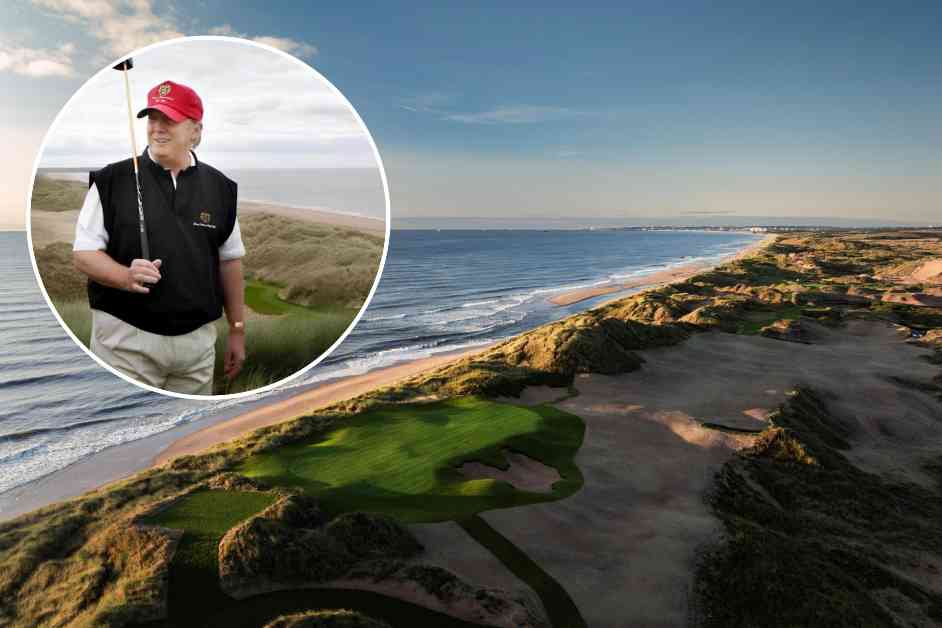Trump International has proudly presented its new 18-hole championship links near Balmedie as an eco-friendly and sustainable course. The company claims that the majority of materials used were locally sourced and that the course boasts a sustainable irrigation system. Additionally, they mentioned that over a million sprigs of native marram grass were planted on the course, along with six tons of marram seeds.
Despite these claims, environmental activists have raised concerns about the course’s environmental impact. They highlight the irreversible damage done to the Foveran Links sand dunes during the construction of the original links at Menie, which led to the removal of its status as a site of special scientific interest. Experts like Bob Ward and Professor Jim Hansom have criticized the notion that building another golf course adjacent to the existing one could be environmentally friendly, calling it “laughable” and emphasizing the severe damage caused to the natural landscape.
Furthermore, naturalists have warned about the potential effects of the course on local wildlife, including otters, deer, badgers, geese, and various insects and invertebrates residing in the area. While Trump International Golf Links, Scotland defends its practices by stating that they have met and exceeded regulatory requirements, brought in top environmental experts, and designed the courses with respect for the environment, critics remain skeptical about the true impact of the development on the ecosystem.
It is clear that the controversy surrounding the environmental claims of the Trump golf course in Aberdeenshire is far from over. The clash between the company’s assertions of sustainability and the concerns raised by environmentalists and experts underscores the importance of thorough scrutiny and accountability in large-scale development projects. Whether the course truly lives up to its eco-friendly image remains a subject of debate, with stakeholders on both sides presenting contrasting viewpoints on the matter.
































